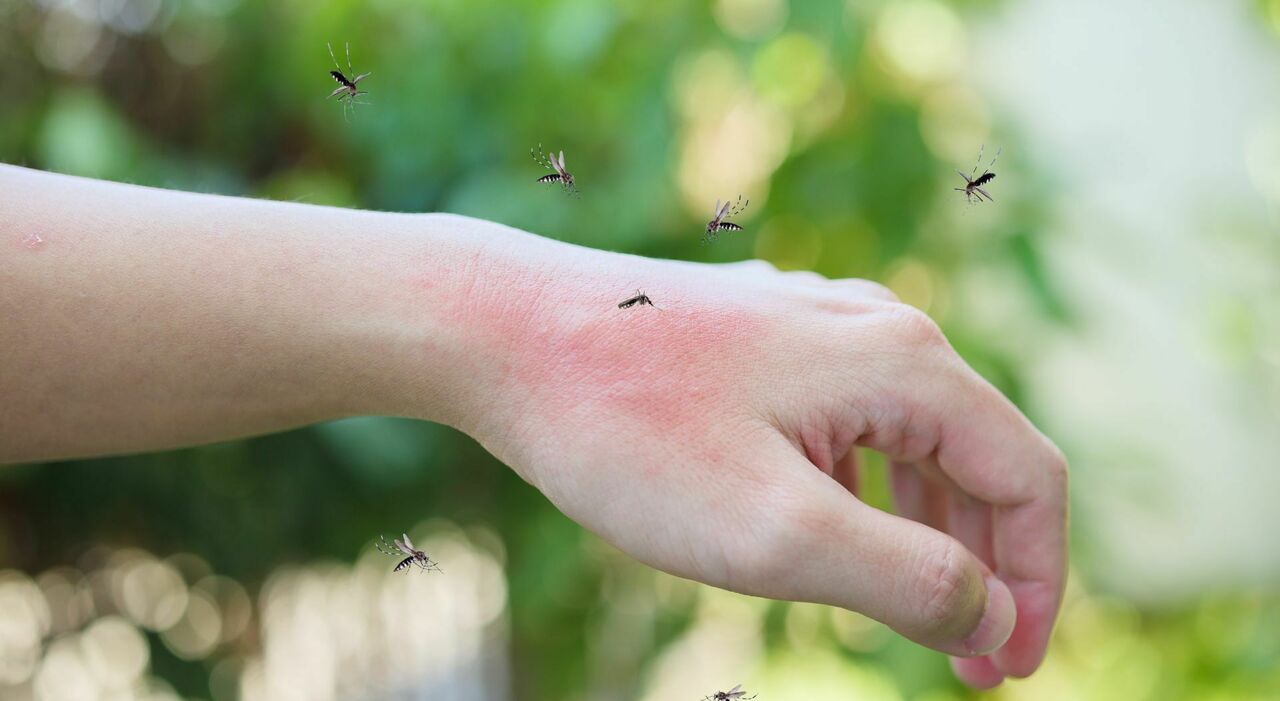Mosquitoes, what a nightmare. How do you stay away from us? How do you keep them away?
But now science is also coming to the rescue against mosquitoes. While the summer season comes alive and buzzes become the soundtrack of sleepless nights, the researchers have not been idling.
Counter the invasion of mosquitoes, when they become disease vectors, is one of the health issues that different groups have been working on for years. In one of the latest published studies, even perfumes ended up in the crosshairs and the latest strategies developed were presented, which also involve the “copinglue” of DNA.
FURTHER INFORMATION
Why are some people mosquito magnets? The question of the olfactory profile
Theories about why some people are mosquito magnets, while others are spared and constantly emerge unscathed from the bites of these insects, abound. A team of researchers from Virginia Tech set out to explore the possible positive or negative impact of soaps. The results of their work were published in the journal “Science”.
The authors note that washing with some soaps can attract mosquitoeswhile others had a repelling effect, but these effects obviously varied, due to the interactions between the soaps and the olfactory profile unique to each person.
“It is extraordinary that a person already extremely attractive to mosquitoes could become even more attractive to mosquitoes with one soap, or become ‘abhorrent’ to the same insects with another soap,” explained the senior author. Clement Vinauger. Experts in the study note that Mosquitoes don’t just feed on blood.
Their main food source is plant nectar, so bathe with it perfumes of vegetable origin or mimicking plants could potentially confuse their decision making.
In the study, researchers characterized the chemical odors emitted by four human volunteers, both when their skin was left unwashed and after washing with 4 brands of soap. Next, the researchers compared each subject’s relative attractiveness to the mosquito Aedes aegypti. Result: «I would choose a soap with coconut scent if you wanted to reduce the attraction of mosquitoes», is Vinauger’s suggestion.
West Nile, first case of infection in Italy: he is a blood donor from the province of Parma
Comparing four soaps with a fruity or floral scent: what emerged?
And indeed the study shows that, in terms of fragrance preferences, three of the four soaps increased the attractiveness of mosquitoes, while one decreased it. All soaps had a fruity or floral scent. What diminished the attraction was the coconut scent. “This was very interesting to us because there is other evidence in the literature that increased certain fatty acids, such as those found in coconut oil derivatives, could serve as a repellent for mosquitoes and other insects» said Vinauger.
Smells aside, science has also fielded technology to study mosquitoes and counteract their ability to carry pathogens. For example, a team at the University of Central Florida has engineered tissue with human cells that mosquitoes love to bite and feed on.
The team led by Bradley Jay Willenberg, with Mollie Jewett (both UCF) and Andrew Dickerson (University of Tennessee) aligned human cells on 3D biomaterials to create tissue that was then infused with blood. The hope is to use this new platform to study how mosquito-borne pathogens infect these cells and tissues. According to the results of their research, published in ‘Insects’, the system looks promising and practical. In fact, tests showed that the insects readily stung the engineered tissue by feeding on the blood present on the constructs.
Nile virus, the mosquito alarm in Italy. The ECDC: it is the first country for the number of cases
Mosquitoes and malaria
Among the diseases carried by mosquitoes is malaria which “remains one of the deadliest diseases in the world“, the scientists remember. Most of the deaths related to the disease, by the way, occur in moles children under 5 years old. A threat that does not stop at geographical borders.
In recent months, the American CDC, for example, announced that cases of malaria transmitted by mosquitoes have also been detected in the USA, and this has not happened for several years. Among the last frontiers of research in this field are weapons that exploit DNA.
A team of researchers from the University of California at San Diego, led by the laboratory of Omar Akbari, has designed a new way to genetically suppress populations of Anopheles gambiae, the mosquitoes that spread malaria in Africa. In the crosshairs the female specimens, which sting and spread the disease. In the study published in ‘Science Advances’ (first author Andrea Smidler), the experts describe a system called “Iphigenia”, which exploits Crispr technology to interrupt a gene that controls sexual development in mosquitoes of this species.
The technique uses Cas9, the molecular “scissors” that make the cuts, and a guide RNA that directs the system towards the target. Scientists have thus managed to genetically modify 2 families of mosquitoes. “We crossed them and the offspring were killed off all female mosquitoes,” Smidler said.
The spread of the malaria parasite they carry is eventually halted as the females are removed and the population reaches a reproductive impasse. Traditional methods of combating the spread of disease, such as bed nets and insecticides, have increasingly proven ineffective. That’s why the search for new and hi-tech strategies continues.
